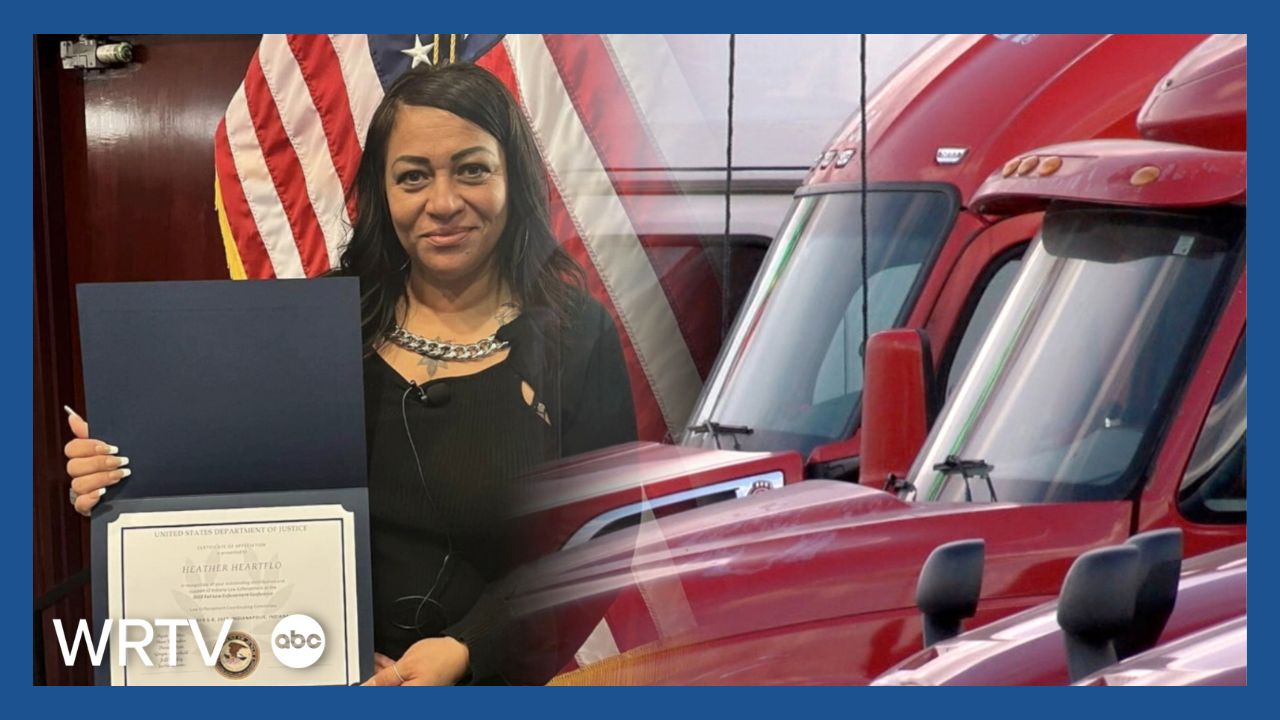INDIANAPOLIS — Heather Maravilla had reached the end of her time in the foster care system.
"It was very difficult for me. I went to bed hungry," Maravilla said, "I fell completely head over heels into addiction. I came out of domestic violence."
She was hopeless, broke, out of options and vulnerable to predators.

Maravilla felt trapped. She said she attempted suicide on a couple of occasions. She survived a couple drug overdoses.
She was even arrested and charged with prostitution.
Maravilla is a survivor of human trafficking. She said she spent 12 years trapped in the sprawling, underground world of human slavery and sex abuse.

"When I was being trafficked," she said, "I was being trafficked through the strip clubs. And everyone was in on it, from the doorman to the police in that city, to the bartender, to the house mom, everybody in that establishment."
She's not alone.
There were more than 63,000 reported cases of trafficked adults and children across the U.S. from 2007 and 2019, according to the Indiana Trafficking Victims Assistance Program.

More than 750 of those cases originated in Indiana.
Indiana Rep. Wendy McNamara, a Republican representing District 76 in southern Indiana, hopes truck drivers can help eradicate human trafficking in the Hoosier state.
She authored a new law that took effect in July and requires anyone applying for a first-time commercial drivers license in Indiana to take a video training course designed to help them recognize and report signs of human trafficking.
"They're our eyes and ears out there on the road," McNamara said. "If they see something and say something, they could potentially save a life."
The BMV reports it has issued more than 31,000 CDL's this year, although it's unclear how many since July, when McNamara's House Bill 1196 became law.
Before they get a CDL, the new truckers or bus drivers watch a 26-minute video, produced by "Truckers Against Trafficking."
The video features victims accounts, including a girl who shares her experience of being forced at truck stops to walk from truck to truck, asking if drivers wants to have sex with her and her 14-year-old cousin.
The video tells truckers what signs they should watch for on the road, at motels, and at truck stops. Those warning signs include suspiciously flashing headlights, honking horns, inappropriate CB radio chatter, tattoos and other branding.
It also offers ways to intervene and directs viewers to the National Human Trafficking Hotline, 1-888-373-7888.
The new video training costs nothing for taxpayers.
Heather Maravilla believes this training can save lives.
She escaped her traffickers 11 years ago and now uses her experience to help others.
"Coming out of something like that is very hard," she said. "I remember going to church that day and I went to work in the club that night and I went to go put on my eyeliner. I looked at myself in the mirror and I just began to cry."

She now works with the Indiana Trafficking Victims Assistance Program — teaching a training course to child welfare workers, law enforcement, doctors, therapists and security officers.
Maravilla hopes as many people as possible, including truckers, will be the eyes and ears, taking action to stop human trafficking.
She wants anyone taking her course to leave with an understanding of what to look for and exactly how subtle human trafficking tactics can be.
-"They need to know what the red flags are because coercion is not something that's visibly seen, like force," Maravella said. "Coercion is seen very undercover and to have the training to look for it is critical."
Here are some groups and resources aiming to stop human trafficking:
TAT Anti-Human Trafficking Training Video









